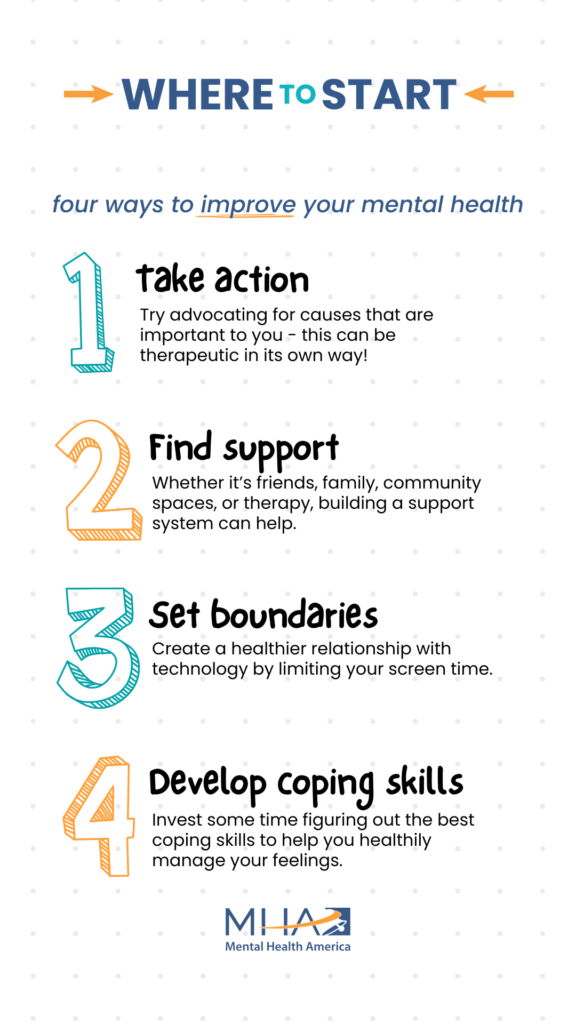This story was first published in the May 2024 issue of Briar Chapel magazine.
In March, I shared a few good websites for finding accurate information about Chatham County. Two of the sites—myFutureNC.org and ncforum.org—indicated that Chatham County’s student to counselor ratio was in need of improvement. At 171:1, the ratio is well above North Carolina’s average student to counselor ratio of 121:1. As May is National Mental Health Month, I’m now going to share some good news on the mental health front for Chatham County Schools, as well as some good tips to help your kids or yourself get the most out of therapy.
Good News
The percentage of North Carolina’s children aged 3 – 17 receiving a diagnosis of depression or anxiety has increased by 49% in the past few years. Unfortunately there are many barriers including staffing and transportation that make it difficult for schools to address the unique needs of all students needing mental health services. For families seeking therapists on their own, cost can also be an obstacle.
The good news is that Chatham County Schools recently partnered with Daybreak Health, a leading provider of school-based mental health services, to offer all K-12 students access to mental health care at no cost to families. Daybreak’s clinicians use evidence-based teletherapy programs to help kids understand and manage their emotions.
Students scheduled for therapy are matched with a clinician based on several factors including their cultural background and language. Sessions, which are video-based, typically start within one to two weeks of a referral, and students can receive up to 12 weeks of teletherapy. Children under age 10 typically see clinicians along with their parents/guardians, whereas older students can meet one-on-one with a therapist.
While it’s still early in its implementation, 50+ students have already been referred and started therapy. The goal is to treat students to a “place of concrete improvement.”
Tracy Fowler, senior executive director of student services for Chatham County Schools, said of Daybreak Health, “One of the great things about Daybreak is their real commitment to matching students to a therapist that they think will work well with a particular student.”
According to Daybreak Health, after therapy, 92% of parents report improved symptoms at home and 8 in 10 school staff see more positive behavior at school.
Daybreak’s website has more information on how the programs work, as well as resources on mental health issues pertaining to school-aged children such as a one-pager on the impact of social media on youth mental health. Visit daybreakhealth.com/resources.
Good Tips
Another great mental health resource is Mental Health America (mhanational.org). On this site you can learn signs and symptoms for different mental illnesses such as depression, anxiety and PTSD; take a mental health test on everything from eating disorders to ADHD; and get contact information for 24/7 crisis hotlines such as those for suicide, domestic violence and trans life.
The site also provides tips on topics such as overcoming negative thoughts and managing emotions. For those reading this article who may be interested in therapy for their children or themselves, following is an abbreviated list of tips from Mental Health America on getting the most out of therapy:
- Tell your provider your goals for treatment.
- Keep an open mind. Be willing to consider new ways of behaving and thinking that might improve the quality of your life.
- If you think you’re not making progress, you should tell your provider. After discussing your concerns, if you’re still not comfortable, you might consider meeting with another therapist for advice and possibly switching.
- Be open and honest. Don’t say you’re fine if you’re not.
- Take your therapy home. Think about ways to use ideas from therapy in your daily life and remember progress doesn’t happen overnight, but you should see change over the course of weeks or months.
Where to start from Mental Health America:

